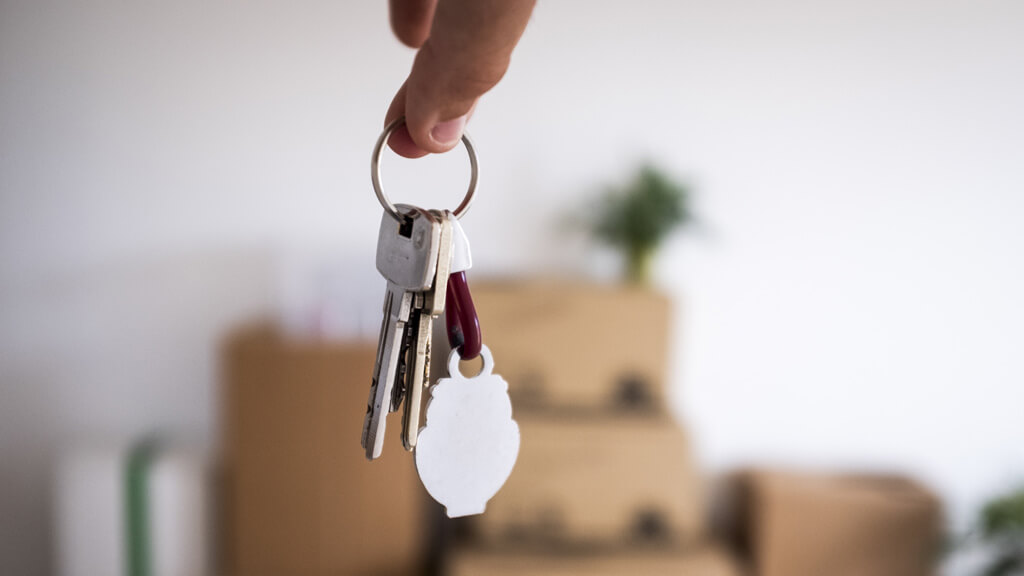Home > Blog > Home > Renting your apartment or your house: what you need to know
Renting your apartment or your house: what you need to know
Luxembourg’s population is expected to reach 1 million inhabitants in 2050 compared to 700,000 today. With this population growth, the demand for housing is exploding, both for purchasing and rentals. This is why the property rental market is attracting more and more investors looking for returns. For a rental to be successful, you should be well-prepared and protect yourself. Our article tells you everything you need to know to become a worry-free landlord or landlady!

What are the advantages of renting out your apartment or your house*?
Renting out your property is tempting, especially in a market as dynamic as Luxembourg’s.
Why is the rental demand high?
Young professionals, students and families in transition often prefer to rent rather than buy. This trend is common in urban and tourist areas. The proximity of amenities and attractions is attractive. Luxembourg’s attractiveness and its economic opportunities have boosted the demand for rental housing with 15% growth over the last five years.
What are the financial benefits of renting out?
Renting out an apartment or a house can be a very lucrative solution. By ensuring you choose the location and quality of your property correctly, you’ll maximize your profitability. Another significant advantage: the maintenance and management costs of the accommodation can be covered by the rent. You maintain the value of your assets! For medium to high-standard accommodation in the centre of Luxembourg, monthly rent can be as high as €1,500-2,000 for a one-room flat and €2,100-2,600 for a furnished two-bedroom flat (excluding utilities).
What are the risks associated with renting out your property?
Renting out your property has benefits, but also comes with some risks.
What is the most common type of property damage with rentals?
Renting out a property can inevitably expose you to possible material damage. Holes in the walls, stains on the carpets or even damaged furniture are minor, but common and frequent causes of damage. The biggest worry is more serious damage such as floods caused by water leaks or accidental fires.
Good to know: Prepare a clear rental agreement to avoid problems
Remember to specify all the rental conditions and the responsibilities of the tenants. The contract should include even the smallest of details and provide for all eventualities. Above all, it should refer to the rules concerning the use of the property, maintenance and repairs. A well-drafted agreement will avoid conflict and misunderstandings!
What are your civil responsibilities towards the tenants?
As a landlord, don’t forget your duties towards your tenants. In particular, you must check that the property is secure and in good condition. Be aware that harm or accidents can be your responsibility. For example, if a tenant is injured due to a faulty installation, you could be held responsible. For peace of mind, take out a suitably adapted insurance policy.
How to protect yourself against unpaid rent?
One of the biggest worries landlords and landladies face when renting out a home is not receiving one or more rental payments on time. You may have loan repayments to pay, which can put you in a difficult situation. We recommend you take preventive measures such as:
- Checking the creditworthiness of interested parties before finalising the contract (payslips, bank statements, etc.).
- Taking out unpaid rent insurance which offers financial protection in the event of non-payment (rent and legal costs cover).
Good to know: Choosing trusted tenants
Use reliable platforms and ask for references before accepting tenants. Check the background and creditworthiness of applicants to minimise the risk of future problems.
What insurance do you need for an uncomplicated rental?
To take care of your property investment and rent it out without problems think about insurance! Let’s look at which insurance and why it’s important.
Why take out non-occupant homeowner’s insurance?
If you rent out your property, non-occupant owner’s insurance (called “PNO” in Luxembourg) is indispensable. Foyer’s PNO insurance can protect you from several situations:
- Damage caused by tenants: protection against material damage, whether minor or major.
- Civil liability cover for property owners: settlement of damages caused to third parties.
- Payment of unpaid rent: a guarantee to cover your rent in the event of non-payment.
- Legal cover: payment of legal expenses related to disputes with tenants.
- Protection plus guarantee: property improvement coverage to protect your investment and ensure the continuity of your income.
Rent with peace of mind with Foyer, knowing that your investment is well protected, no matter what happens.
How does unpaid rent insurance secure your income?
Unpaid rent insurance is a lifeline for owners. Here’s what it offers you:
- Payment of unpaid rent (up to 12 months).
- Support for recovery and eviction fees.
- Legal assistance (support to manage conflicts with tenants, within the legal protection framework).
- Financial peace of mind (no worry about financial losses).
Would you like more information on unpaid rent? Consult our article on the subject.
As you can see, renting out your property can be very profitable, but you shouldn’t underestimate the associated risks. A successful rental requires scrupulous preparation. Remember to cover yourself by taking out special property rental insurance. For even more peace of mind choose trusted tenants and include specific conditions in the contract.
The three key points to remember:
1. Highly profitable: Renting out your property can offer additional income thanks to the increase in rental demand and high rents.
2. Risks involved: Protect yourself against property damage and unpaid rent by selecting reliable tenants and drawing up clear contracts.
3. Essential insurance: Taking out guarantees such as PNO and unpaid rent insurance is essential to secure your investment.


